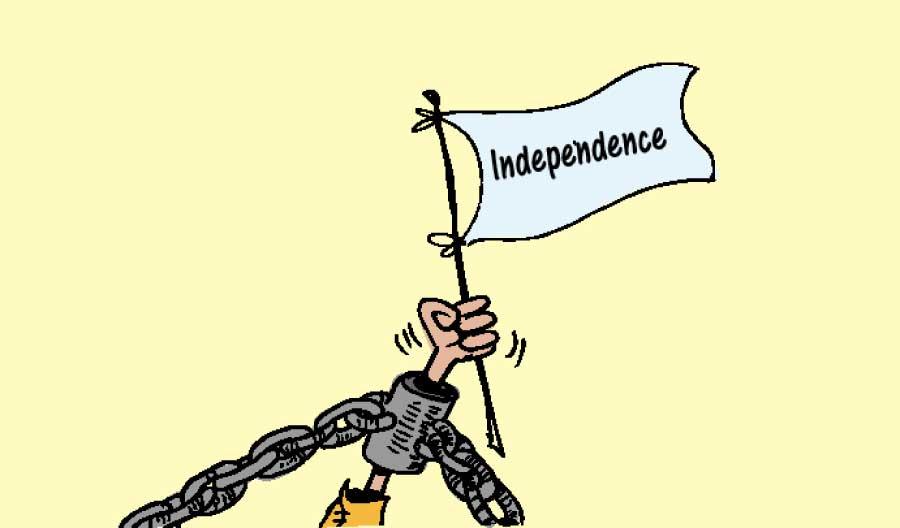20 Jan 2023 - {{hitsCtrl.values.hits}}

As Sri Lanka gets ready to celebrate its 75th Independence Ceremony on February 4 there is much debate and talk about how some of the basic human rights of the people who have come under strain.
At the time of writing we see certain grieved sections of the public who stage protests being chased away or water cannoned by the law enforcement authorities. At a time when this nation is praying for the arrival of the next national leader we see Wasantha Mudalige- Convener of the Inter-University Students Federation- being held in remand custody under the Prevention of Terrorism Act (PTA) for allegedly
committing offences.
Sri Lanka has in its recorded history seen many struggles carried out to usher in independence. After Sri Lanka (then Ceylon) witnessed its first independence in 1948 and the immediate subsequent independence ceremonies it occurred to its people that the decision making elite of the country were not giving much prominence to the religious and cultural entities of the island. This gave rise to the traditionalist and revivalist movements in the country which started functioning through politics to close the gap between the elite and the common people.
Fast forward the clock after those early years and just as we are getting ready to celebrate a milestone Independence Day series of events the present regime is also thinking on the lines of giving prominence to Sri Lanka’s rich culture. Despite the criticism that’s doing the rounds that the government is set to waste Rs 200 million on a series of Independence Day celebrations the president and prime minister have defended the decision taken to go ahead with plans for the event. The government sees this as an investment for the future.
The government has also announced that it plans to introduce new laws and institutions in a build up to the 100th Independence Day celebration. All these sayings about an ‘ambitious’ future plan by the government is mentioned to the public when the reality is that no foreign investor is sure of what economic policy change on the cards would disrupt existing businesses in the country. The truth is that no government which held office after the conclusion of the civil war could show the foreign investor here on the island a concrete five-year economic development plan it had for the country.
As the government plays to the gallery and plays the nationalistic card quite subtly we hear of the prominent Muslim organization or apex religious body called All Ceylon Jamiyyathul Ulama having celebrated its 100th year yesterday (January 19) at a gala ceremony at the BMICH. This body has served the community by providing religious and community leadership to the Muslims of this nation. There are so many other organizations, community service groups and even sports clubs which have served this nation silently and reached their centenary years. This government can take a cue from them; if it can survive future elections!
Just the other day we saw the lowest turnout in parliament when voting took place to bring to force the bill titled ‘Bureau of Rehabilitation’. As many as 195 Members of Parliament were absent during voting. There is much criticism that the bill was introduced to crackdown on the ‘Aragalaya protestors’. All this happens at a time when there is much public debate as to who should be rehabilitated; whether it’s members of the Aragalaya (Protest) or some of the Members of Parliament who have many allegations levelled against them.
If this regime is genuine about celebrating independence it must first do justice to those grieving for those who went missing during the civil war, those who died due to the Easter carnage and those held captive for voicing their demands for a system change.
Past regimes have offered presidential pardons to criminals and even released captives- who were the livewires behind public struggles- because such acts have underscored that ‘love’ builds trust and that type of rule subsequently contributes to a country’s stability.
09 Jan 2025 30 minute ago
09 Jan 2025 2 hours ago
09 Jan 2025 3 hours ago
09 Jan 2025 3 hours ago
09 Jan 2025 3 hours ago